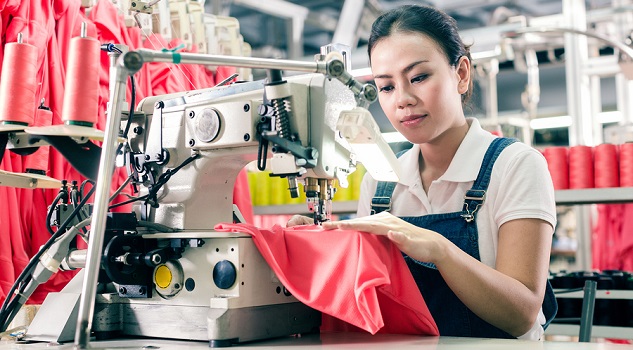The Fair Work Ombudsman is auditing hundreds of businesses nationally after finding a lack of awareness of the minimum pay rates that apply to manufacturing workers who make clothes, bags and footwear in factories and their homes.
The Fair Work Ombudsman released a report on the findings and insights gained from the initial education phase of its national Textile, Clothing and Footwear campaign.
The education phase of the campaign involved the Fair Work Ombudsman engaging with workers and business operators at all levels of the clothing, footwear and textiles supply chain, including retailers, wholesalers, fashion houses, merchant distributors, contractors, factory workers and outworkers.
The Fair Work Ombudsman sent education resources to more than 800 businesses in the industry and directly engaged with 295 textile, clothing and footwear manufacturers.
The Fair Work Ombudsman also distributed education and community engagement material to 30 local councils in Victoria and NSW and the Migrant Resource and Working Women’s centres Australia-wide; co-hosted a family day with the Asian Women at Work organisation; and extensively promoted the campaign via media and social media.
The interactions revealed limited understanding or observation among business operators of their obligations under workplace laws, including minimum pay rates that apply to workers involved in the manufacturing process.
The interactions also revealed confusion about how compliance and regulation interacts with different levels of the supply chain.
In response to the findings, the Fair Work Ombudsman is auditing more than 365 clothing, textile and footwear manufacturing businesses nationally as the campaign moves into the second phase.
“We identified a strong need to follow-up the clothing manufacturing businesses, we educated during the initial phase of the campaign with audits to ensure they are meeting workers’ minimum lawful entitlements,” Fair Work Ombudsman Natalie James said.
“We are conscious that there are many overseas and migrant female workers in this sector who can be vulnerable if they are not fully aware of their rights or reluctant to complain, so it’s important we are proactive about checking they are receiving their full entitlements. We have also found that there is pressure on the price of local production which has rendered those at the lower levels of the varied and fragmented supply chains in this sector particularly vulnerable,” James said.
James added a fundamental issue business operators and workers had been educated on during the campaign is that clothing manufacturing workers are lawfully entitled to minimum hourly rates of pay.
“It’s common for workers involved in making clothes, bags and footwear to work from home but that doesn’t mean they should be paid less than people who do work from a factory.”
Employers found to be non-compliant during the current compliance phase of the campaign will be offered tailored assistance to rectify any non-compliance issues and put processes in place to ensure employers get things right in the future. Enforcement action will be considered on a case-by-case basis for any non-compliance found during the second phase of the campaign.
“We are committed to providing these employers with resources and information that allows them to understand and comply with their obligations as efficiently as possible,” Ms James said.
Links to a range of tools and resources for employers and workers, including information translated in Chinese and Vietnamese, is available at a dedicated campaign webpage at www.fairwork.gov.au/clothing
Inside Small Business















